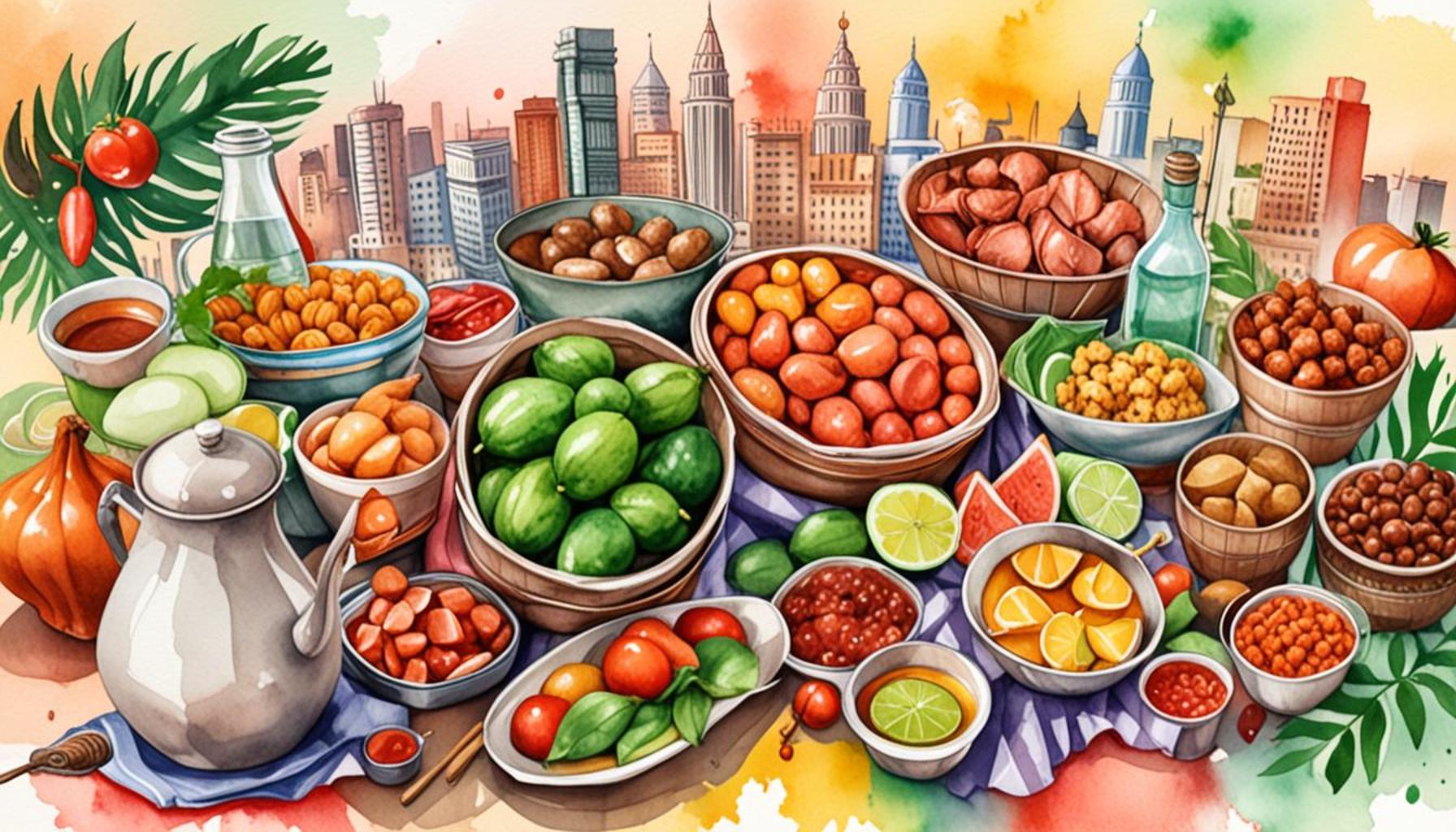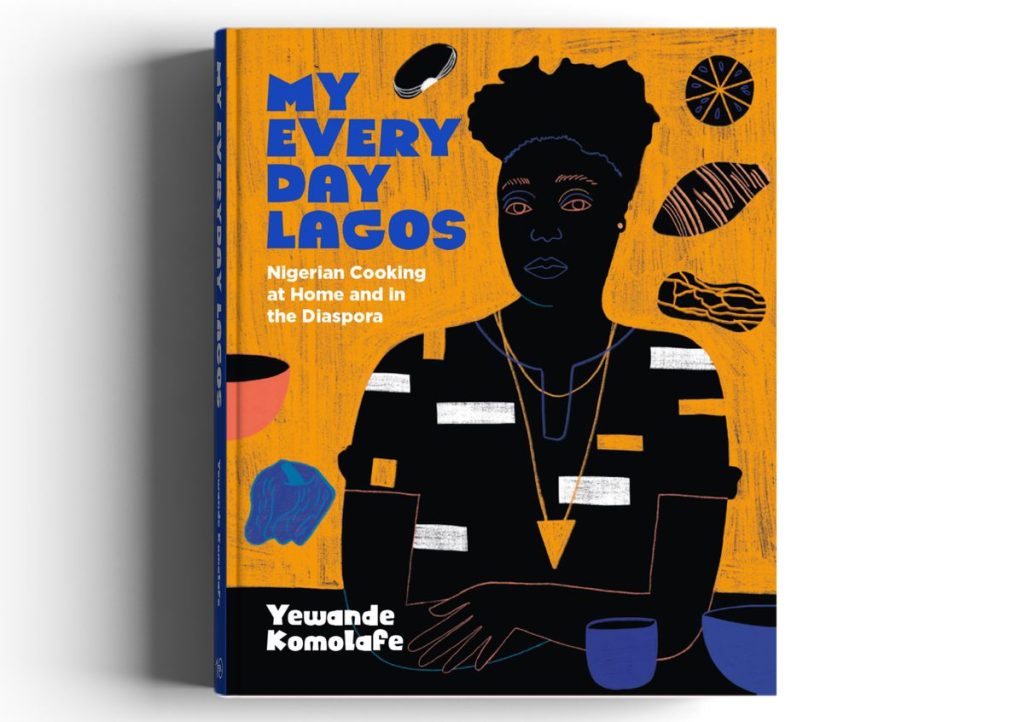Nigerian Flavors A Culinary Journey Through Its Vibrant Cities

Embarking on a Nigerian Culinary Adventure
Embarking on a culinary adventure through Nigeria offers an unparalleled opportunity to explore a rich tapestry of flavors and traditions that captivates the senses and enriches cultural understanding. These culinary experiences are more than just gastronomical delights; they are a narrative of Nigeria’s history and diversity, offering travelers a tangible connection to the country’s vibrant past and ever-evolving identity.
A Mosaic of Flavors
Nigeria’s culinary landscape is as diverse as its people, characterized by a fascinating array of rich spices that create deep, complex flavors. These spices, including ginger, garlic, thyme, and chili peppers, are skillfully blended to produce unique and unforgettable tastes. Each city comes alive with its own aromatic symphony, a testament to Nigeria’s multifaceted cultural spectrum.
Popular Dishes to Try
- Jollof Rice: A beloved staple, this iconic dish features rice cooked with tomatoes, onions, and a blend of savory spices. Its flavor varies slightly across regions, sparking friendly debates about who makes it best.
- Pounded Yam: A smooth and elastic accompaniment that pairs perfectly with various soups and stews, reflecting both technique and tradition.
- Suya: This spicy, grilled meat skewer commonly found at roadside vendors is infused with a peanut-based spice mix that leaves a lasting impression.
Authentic Nigerian Street Food
Street food in Nigeria is a vibrant reflection of local culture, teeming with authenticity. Street vendors not only provide a snapshot of everyday life but also present travelers with a chance to enjoy accessible, flavorful, and budget-friendly meals. From the satisfying balls of akara (bean cakes) to invigorating sips of zobo (hibiscus drink), the offerings are diverse and delightful.
Discover the Top Five Culinary Cities
For those seeking memorable experiences, culinary exploration is an essential part of their itinerary. In the following sections, we will rank and delve into the top five cities that showcase the best of Nigerian flavors. These cities promise to ignite your taste buds and inspire your travel plans, offering a captivating blend of tradition, innovation, and an unyielding zest for life that permeates every dish.
Top 5: Flavors of Nigeria – A Gastronomic Journey Through the Cities
Exploring the culinary wonders of Nigeria is akin to embarking on a vibrant journey through a rich tapestry of flavors, cultures, and traditions. Nigeria, with its diverse ethnic groups and regions, offers a plethora of culinary experiences that reflect its heritage and abundant local ingredients. From spicy stews to delectable snacks, Nigerian cuisine presents a delicious adventure for any traveler. Here, we delve into our top five gastronomical experiences that are an absolute must-try on your culinary voyage through Nigeria.

5. The Spice-Filled Charms of Lagos
Lagos, the bustling economic hub of Nigeria, is not only renowned for its beaches and vibrant nightlife but is also a culinary paradise offering street food that caters to every palate. In Lagos, you’ll discover a harmonious blend of traditional and contemporary culinary delights.
- Suya: This spicy meat skewer is a superstar of Nigerian street food, typically prepared with beef or chicken and marinated in a piquant mix of spices. Grilled over open flames, suya is served with sliced onions and fresh tomatoes, creating an irresistible combination.
- Puff-Puff: These delightful small fried dough balls are sweet, fluffy, and perfect for snacking. Often enjoyed with a sprinkle of powdered sugar, puff-puff is a festival favorite and a staple at social gatherings.
- Jollof Rice: A quintessential West African dish, Jollof rice in Lagos is an experience that rivals that of any other region. Cooked with tomatoes, peppers, and a blend of spices, this dish is often served with grilled chicken or fried plantains, epitomizing a perfect balance of flavor and texture.
The bustling markets of Lagos, such as the famous Balogun Market, provide an ideal setting to sample these culinary delights. Exploring these vibrant streets allows you to indulge in the diverse flavors that define the city’s identity.
4. The Rich Stews of Port Harcourt
As you venture into Port Harcourt, the capital of Rivers State, you are greeted by the distinctive flavors of the Niger Delta region. Known for its rich stews and seafood dishes, this city showcases a unique blend of local fishing traditions and culinary innovation.
- Onye Nkwu: A sumptuous soup that highlights the freshest fish sourced from the local rivers, Onye Nkwu is a hallmark of Port Harcourt’s cuisine. The intricate flavors combined with locally sourced ingredients make this dish an exceptional culinary experience.
- Bitterleaf Soup: A hearty and nutritious stew, Bitterleaf Soup is made using the leaves of the Vernonia plant, known for its medicinal properties. Often paired with pounded yam, this dish offers both comfort and nourishment.
- Catfish Pepper Soup: A spicy, aromatic broth, this dish features tender chunks of catfish and is seasoned to perfection. Ideal as an appetizer or a main course, it reflects the city’s rich culinary heritage.
Dining in Port Harcourt allows you to experience authentic home-style cooking, often accompanied by gnawa, a genre of traditional music, providing a sensory delight that enhances every bite.
3. The Culinary Melting Pot of Abuja
As Nigeria’s capital city, Abuja is a melting pot of cultures, offering a diverse culinary scene that represents the myriad ethnic groups found throughout the country. Visitors will appreciate the unique fusion of flavors that this cosmopolitan city has to offer.
- Ofada Rice and Ayamase Sauce: A local delicacy, this dish pairs specially cultivated Ofada rice with Ayamase sauce, a unique green pepper sauce that showcases bold flavors and a rich cultural heritage.
- Nkwobi: A spicy cow foot dish traditionally enjoyed with palm wine, Nkwobi is an embodiment of the city’s culinary heritage and a delight for those seeking authentic Nigerian flavors.
- Moi Moi: This steamed bean pudding offers a balanced and nutritious option beloved across Nigeria. Its smooth texture and rich flavor profile make it a perfect complement to other dishes.
The food scene in Abuja is not just about the meals; it is an exploration of the country’s diverse cultures through its varied culinary offerings. Each dish tells a story of the people and traditions that make up the vibrant tapestry of Nigeria.
2. The Sweet Treats of Enugu
In the heartland of southeastern Nigeria, Enugu surprises visitors with its variety of traditional dishes and sweet treats. This city is an epicenter for authentic Igbo cuisine and offers a delectable array of flavors.
- Abacha: Also known as African salad, Abacha is made from fermented African locust beans and often served with fried fish or kpomo (cow skin), offering a refreshing and satisfying taste experience.
- Ofe Nsala: Also referred to as white soup, Ofe Nsala is a peppery broth traditionally made with catfish or goat meat. Typically prepared for festive occasions, this dish symbolizes celebration and culinary expertise.
- Chin Chin: A crunchy, sweet snack, Chin Chin is perfect for those with a sweet tooth. Often enjoyed during festive occasions, its crisp texture and subtle sweetness make it a beloved treat across Nigeria.
Enugu is a city that proudly celebrates its culinary heritage, making it an essential stop for anyone interested in delving into the indigenous flavors that define Nigerian cuisine. The pride in tradition and innovation from local chefs makes Enugu a true tasting ground.
1. The Flavors of Ibadan – The Crown Jewel
At the top of our list is Ibadan, the capital of Oyo State, where a rich culinary history offers an unmatched experience and transports you to the roots of Yoruba culture. Ibadan’s culinary landscape is vast and leaves an indelible mark on its visitors.
- Amala and Ewedu: A quintessential Yoruba dish, Amala is made from yam flour and served with a smooth and slimy Ewedu soup, often accompanied by a hearty stew or assorted meat known as gbegiri. This combination is not just a dish but a cultural emblem.
- Gbona Soup: This soup, rich and savory, incorporates an array of spices and local herbs that distinguish Yoruba cooking. It’s typically enjoyed with fufu or pounded yam, making it filling and flavorful.
- Akara: These deep-fried bean cakes are a popular breakfast option. Crispy on the outside and soft on the inside, Akara cakes are often paired with pap or custard for a balanced meal.
Ibadan serves as a culinary treasure trove that highlights the deep-rooted flavors and age-old cooking practices that have stood the test of time. Visiting Ibadan is more than just a gastronomic endeavor; it’s an immersive journey into the cultural soul of Nigeria.
Embarking on a culinary adventure through Nigeria’s cities reveals a vivid spectrum of flavors and traditions that make up its rich tapestry. Each city tells a story unique to its people and history, inviting travelers to explore an extraordinary world of spices, stews, and sweets. Whether you’re a seasoned foodie or a curious traveler, Nigeria’s culinary landscape promises an experience that will leave you craving more.
| Culinary Diversity | Unique Flavors and Ingredients |
|---|---|
| Regional Specialties | Each city in Nigeria boasts its own specialty dishes, reflecting local culture and history. |
| Popular Dishes | From Jollof Rice in Lagos to Suya in Abuja, these dishes come with their own unique preparation methods. |
| Cultural Significance | Meaning Behind the Dishes |
|---|---|
| Food as Identity | Nigerian dishes often reflect the rich tapestry of the nation’s ethnic diversity and heritage. |
| Festivities | Many traditional dishes are prepared during festivals, enhancing their cultural and social relevance. |
| Health Benefits | Nutritional Value of Key Ingredients |
|---|---|
| Natural Ingredients | Many Nigerian dishes utilize fresh vegetables, grains, and proteins, contributing to a balanced diet. |
| Health Traditions | Traditional cooking methods often enhance nutritional value while minimizing harmful additives. |
| Tourism Impact | Gastronomic Tourism Potential |
|---|---|
| Attracting Visitors | Culinary tours highlight Nigerian cuisine, leading to increased tourism and economic growth. |
| Local Markets | Visitors can explore local markets that showcase the culinary richness and variety of Nigerian food. |
Frequently Asked Questions: Nigerian Culinary Journey
What are some must-try dishes when exploring Nigerian cuisine?
Nigerian cuisine is incredibly diverse, offering a vast array of flavors and dishes that are a true reflection of its rich cultural heritage. Some must-try dishes include Jollof Rice, often considered the staple of West African cuisine, with its vibrant red color and spicy taste. Another quintessential dish is Pounded Yam with Egusi Soup, a hearty meal loved across the country. Don’t miss out on trying Suya, a spicy meat skewer that’s both delicious and ubiquitous on Nigerian streets.
How does the cuisine differ among the cities in Nigeria?
Nigeria’s culinary landscape is as diverse as its cities. In Lagos, you’ll find an exciting fusion of traditional and modern flavors, reflecting the city’s cosmopolitan nature. The northern city of Kano offers dishes rich in spices, with elements borrowed from Arabic influences. Meanwhile, in Enugu, the focus is on dishes made from palm oil and vegetables, like the popular Nkwobi.
What ingredients are commonly used in Nigerian cooking?
Key ingredients in Nigerian cooking include yams, cassava, rice, and beans. Staples such as palm oil, crayfish, and diverse spices like ginger, nutmeg, and chili peppers are also prevalent. Leafy vegetables like spinach, bitter leaf, and pumpkin leaves play an essential role, while proteins like chicken, beef, and various fish enhance the dishes’ flavors.
Is Nigerian cuisine spicy, and are there options for those who prefer mild flavors?
Nigerian cuisine is known for its spicy and bold flavors. However, many dishes can be adjusted to suit milder palates. It’s common for restaurants or home cooks to vary the level of heat by controlling the amount of chili peppers or spices used. Dishes like Pepper Soup might usually be spicy, but alternatives with less intensity are often available.
Are there vegetarian or vegan options available in Nigerian cuisine?
Yes, there are various vegetarian and vegan options within Nigerian cuisine, although traditionally, many dishes include meat. Vegetable-based meals like Okra Soup, Efo Riro (a spinach-based stew), and Moi Moi (steamed bean cakes) can be prepared without animal products. With the growing awareness and demand, more Nigerian recipes are being adapted to meet vegetarian and vegan preferences.
Conclusion: Tasting Nigeria’s Diversity
Nigeria’s culinary landscape is a vibrant tapestry, weaving together a variety of flavors and influences that reflect the nation’s rich cultural heritage. The journey through its cities offers a gastronomic adventure that is both diverse and delicious, inviting travelers to uncover the stories behind each dish.
From the bustling street food scenes in Lagos, where spicy suya and savory jollof rice ignite the senses, to the traditional markets of Kano, with their aromatic meat stews and rich spices, each city presents a unique taste of Nigeria’s culinary art. The palm oil-infused dishes of Enugu and the seafood delights in the coastal city of Calabar further showcase the regional diversity. These flavors not only satiate the palate but also tell the tale of a nation with a deep love for food and community.
As travelers explore Nigeria through its food, they gain insights into local customs, historical ingredients, and the cultural significance of what is served at the table. This culinary tour encourages a deeper appreciation for Nigeria’s hospitality and heritage, making it an essential component of any tourist itinerary.
Ultimately, the flavors encountered in Nigeria are more than just sustenance—they are an invitation to discover the heart of a nation through its recipes. For tourists planning their itineraries, immersing in Nigerian gastronomy offers an unmatched opportunity to connect with the country’s culture and people in an engaging and delicious way. By indulging in regional specialties, travelers can better understand the social and historical currents that shape Nigeria today.


